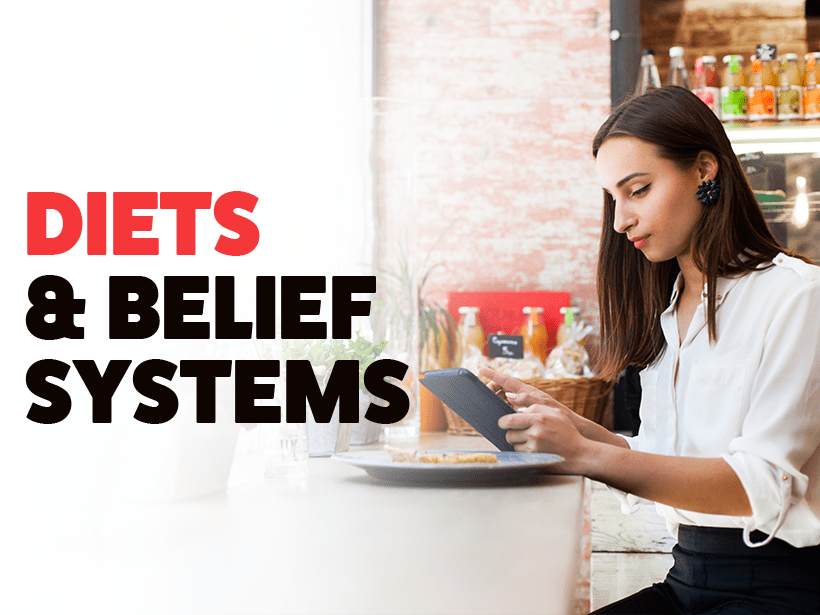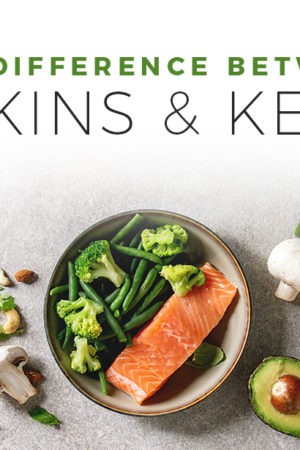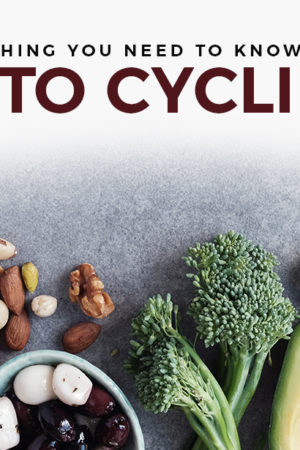Many fad diets promise fast and dramatic results, but dieters often end up gaining the weight back over the long-term. Basically, fad diets are unsustainable, mostly because their rules are way too rigid and unbalanced. Juliana Cavaleri, a Ryerson University graduate with a Bachelor’s of Science in Nutrition and Food, sheds light on these diets.
Diets & Belief Systems
Cavaleri puts the emphasis on finding balance and tailoring eating habits to one’s lifestyle and natural rhythm. People often place their own belief systems on their body and the food they eat. For example, one might turn to veganism if they value peace and equality of life for humans and animals. Likewise, many on the ketogenic diet value fitness and maintaining an active lifestyle.
Fad diets allure people because of their quick-fix weight loss, but some deeper digging reveals these fad diets aren’t all that great. Unfortunately, today’s busy schedules and social media addictions make these fads look mighty enticing. Social media also contributes to a sense of community for some dieters. Yoga-loving vegans and gym rats sharing their meals litter Instagram.
Fad Diets Vs. Lifestyle Changes
While the South Beach and military diets scream “fad,” Cavaleri sees vegan and keto diets more as lifestyle choices. ”With the South Beach and Atkin’s, those weren’t really doctor encouraged,” Cavaleri says. “The difference with these diets and the ketogenic diet is that [keto is] doctor supported. Veganism is not supported by doctors, but instead, more of an internal belief system.” ¹
Unlike fad diets, these lifestyle changes typically encourage the consumption of whole foods. This is great considering Americans eat a surplus of processed foods, and all that extra sugar, sodium, and chemical garbage is no good.
If adopting one of these lifestyles aligns with a person’s life and makes them feel good, great. But if the constant depriving of food cravings sets off a binge, it may be best to alter the diet. Everyone has different needs, and finding an equilibrium between health and enjoyment is key.
Possible Dangers
Some people choose certain diets in order to feel a sense of control or to support some belief, like perfectionism in their lives. A diet is not a replacement for control, and the answers to life’s problems don’t lie in what a person eats. Brooke Finnigan at the National Eating Disorder Information Centre suggests these people look at what led “them to feel that they lack control to the extent that they are seeking it in their relationship with food.”²
Cavaleri is more interested in portion size than anything else. Keto may not be as popular as veganism, but it’s a lifestyle that may be easier to stick with. The consumption of more protein and fat and fewer carbohydrates improves athletic performance and increases fitness results.³
At the end of the day, choose eating habits that fit your life and fuel your body properly, but also allow room for enjoyment.
NUTRITIONAL DISCLAIMER
The content on this website should not be taken as medical advice and you should ALWAYS consult with your doctor before starting any diet or exercise program. We provide nutritional data for our recipes as a courtesy to our readers. We use Total Keto Diet app software to calculate the nutrition and we remove fiber and sugar alcohols, like erythritol, from the total carbohydrate count to get to the net carb count, as they do not affect your blood glucose levels. You should independently calculate nutritional information on your own and not rely on our data. The website or content herein is not intended to cure, prevent, diagnose or treat any disease. This website shall not be liable for adverse reactions or any other outcome resulting from the use of recipes or recommendations on the Website or actions you take as a result. Any action you take is strictly at your own risk.
- One in Three Millennials Wants to Try Keto - March 27, 2019
- 5 Common Keto Mistakes to Avoid - March 15, 2019
- High Insulin Levels are Toxic to the Placenta and Can Cause Miscarriages - March 7, 2019































